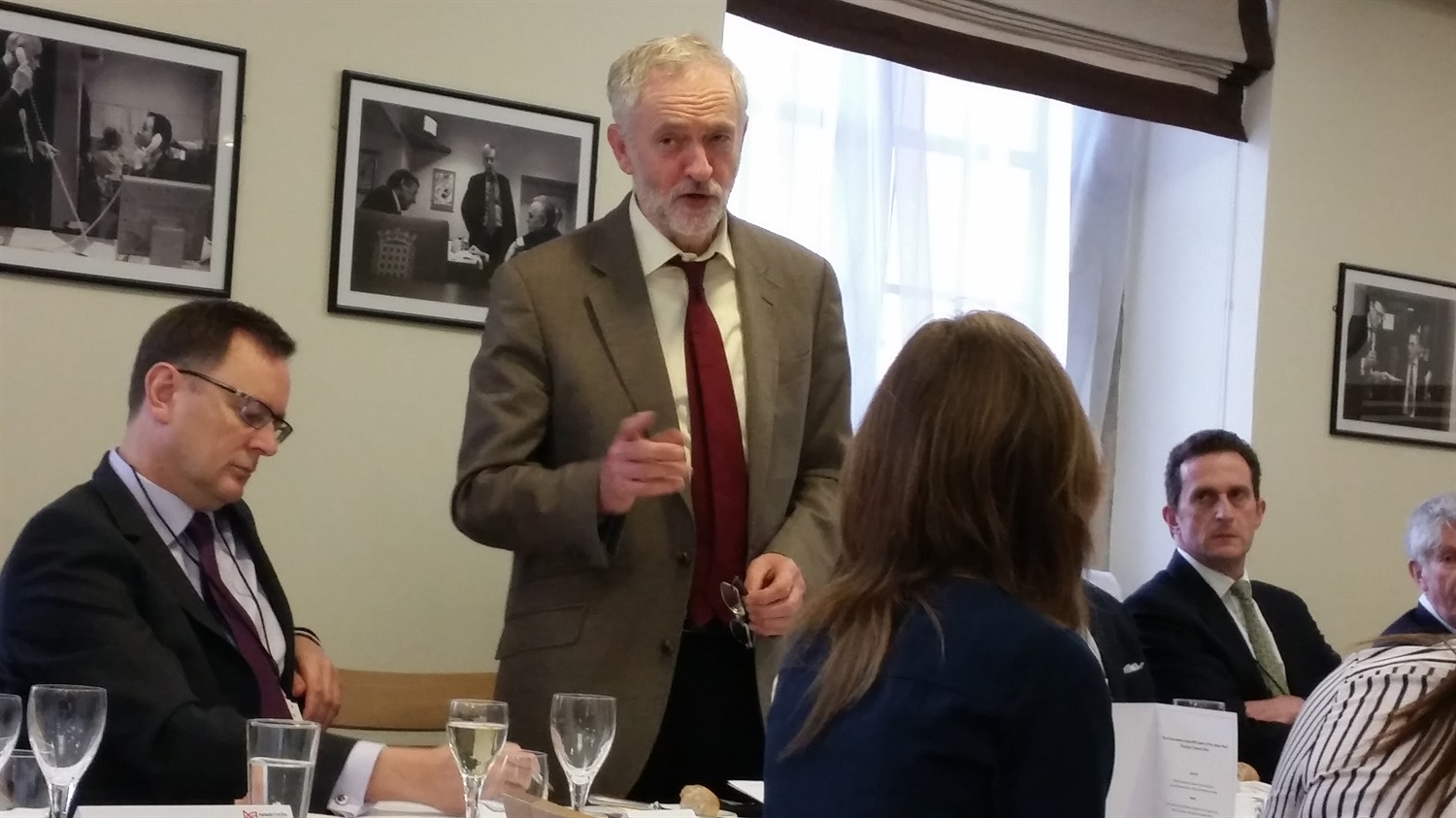Jeremy Corbyn to Look at Strengthening Freedom of Information Act
Jeremy Corbyn has said the Freedom of Information Act is “essential in any democracy” and important tool for local newspapers and investigative journalists at the Newspaper Conference annual lunch today.
Speaking about the Freedom of Information Act, the Labour Party leader said: “We have a Freedom of Information Act which is very, very important because freedom of information is essential in any democracy if you are to hold to account those that exercise authority, power or administration.
“I’m absolutely against charging for FOI requests.”
“It’s an essential tool for the entire community. It’s also an essential tool for investigative journalists to find out what is going on in local government, local health authorities, local police and crime commissioners work and many, many other areas.”
“It’s very important and I’m sure that’s something we can all agree on; the essential nature of the Freedom of Information Act, the freedom of information is a very important tool for local newspapers as well as of course national newspapers and journalists, it is a question of accountability.”
Delivering the vote of thanks, News Media Association chairman Ashley Highfield said he welcomed the Labour Party’s commitment to strengthening FOI to which Mr Corbyn responded: “There is a case for strengthening it and I’ll look at that.”
Mr Highfield added: “Mr Corbyn, your comments today indicate that you and your colleagues recognise the importance of local media to democracy. We hope this can be reflected in all areas of the Labour Party’s policy-making.”
Mr Corbyn spoke on a variety of topics at the lunch chaired by Newspaper Conference chairman Annabelle Dickson, Archant group political editor, attended by 40 local and regional press editors, political editors, and chief executives.
Mr Corbyn said it was his first “press lunch” as he didn’t normally attend them. The Newspaper Conference is the regional press lobby Westminister, made up of 10 regional press political editors reporting on Westminster politics.
Asked by Yorkshire Post political correspondent Kate Proctor whether the recent reshuffle was a “revenge reshuffle” Mr Corbyn said it was an “adjustment” and revealed he had signed off on the completed reshuffle by text message.
Mr Corbyn talked at length about his experience as a journalist on local newspapers. He said: “What was nice about that paper and indeed what is nice about local papers is that it was the glue of the community, that everybody bought the paper, everybody relied on the paper, and I think that’s true of local media all over the country.
“Even with some degree of centralisation of local media and some degree centralisation of newsgathering there is still a much greater trust in local media and in regional media than in national media, and I think that’s something we should be pleased with and I think it’s something that’s very important in our lives.
He added: “I love the diversity and variety of this country and I think there’s a huge and very important role in community cohesion not just for local papers but for local radio stations, local TV stations, and regional newspapers and that can be very important in reaching out to all communities.
“So you can get more people from BME communities buying and reading local papers if the local papers are responding to what their community are saying so you report just as much of the relevance of what’s happening in the mosque as what’s happening in church or a synagogue or a temple so it can become a very important binding agent for the local community.”
